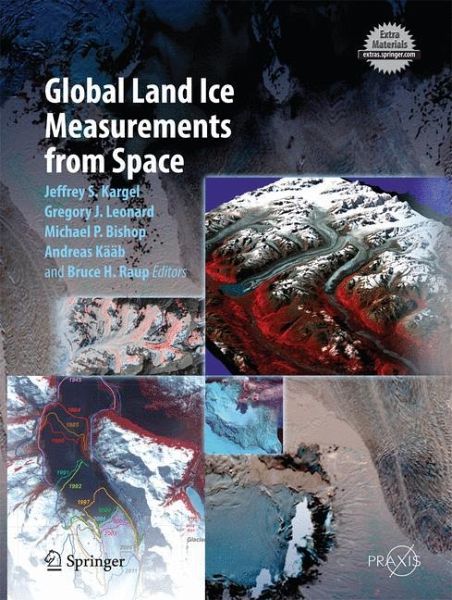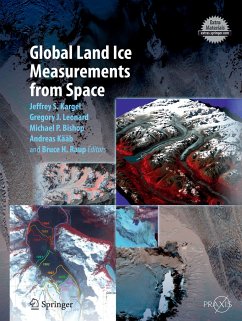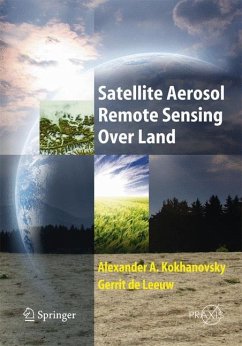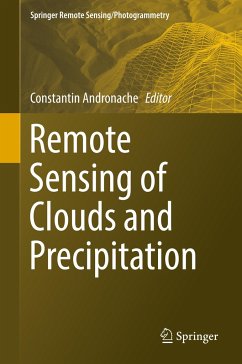
Global Land Ice Measurements from Space

PAYBACK Punkte
76 °P sammeln!
An international team of over 150 experts provide up-to-date satellite imaging and quantitative analysis of the state and dynamics of the glaciers around the world, and they provide an in-depth review of analysis methodologies. Includes an e-published supplement. Global Land Ice Measurements from Space - Satellite Multispectral Imaging of Glaciers (GLIMS book for short) is the leading state-of-the-art technical and interpretive presentation of satellite image data and analysis of the changing state of the world's glaciers. The book is the most definitive, comprehensive product of a global glacier remote sensing consortium, Global Land Ice Measurements from Space (GLIMS, http://www.glims.org). With 33 chapters and a companion e-supplement, the world's foremost experts in satellite image analysis of glaciers analyze the current state and recent and possible future changes of glaciers across the globe and interpret these findings for policy planners. Climate change is with us for some time to come, and its impacts are being felt by the world's population. The GLIMS Book, to be released about the same time as the IPCC's 5th Assessment report on global climate warming, buttresses and adds rich details and authority to the global change community's understanding of climate change impacts on the cryosphere. This will be a definitive and technically complete reference for experts and students examining the responses of glaciers to climate change. World experts demonstrate that glaciers are changing in response to the ongoing climatic upheaval in addition to other factors that pertain to the circumstances of individual glaciers. The global mosaic of glacier changes is documented by quantitative analyses and are placed into a perspective of causative factors. Starting with a Foreword, Preface, and Introduction, the GLIMS book gives the rationale for and history of glacier monitoring and satellite data analysis. It includes a comprehensive set of six "how-to" methodology chapters, twenty-five chapters detailing regional glacier state and dynamical changes, and an in-depth summary and interpretation chapter placing the observed glacier changes into a global context of the coupled atmosphere-land-ocean system. An accompanying e-supplement will include oversize imagery and other other highly visual renderings of scientific data. n












